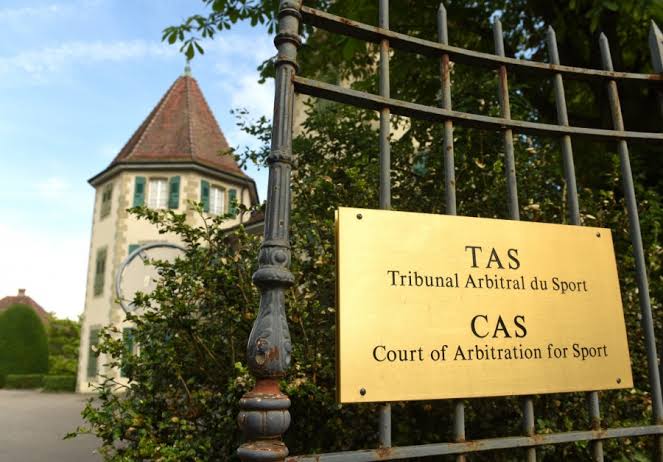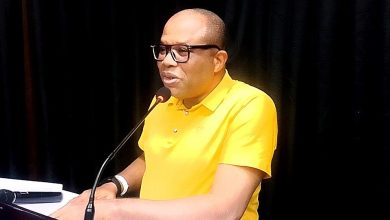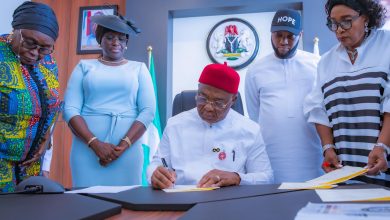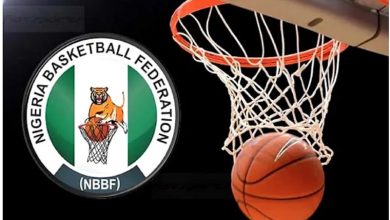THE NEED FOR A SPORTS ARBITRATION TRIBUNAL FOR THE RESOLUTION OF SPORT DISPUTES IN NIGERIA

Written by Alice Lawrence-Nemi
LLM; FCIArb (UK); FICMC
INTRODUCTION:
This publication looks at the need for the establishment of an Alternative Dispute Resolution (ADR) Centre for the purpose of resolution of sports disputes in Nigeria. It canvasses that an Alternative Dispute Resolution Centre by way of a tribunal be set up for the settlement of sports related disputes in Nigeria.
Historically, the purpose of the game of sport was for recreation, entertainment and the promotion of the value of sportsmanship. However, sports havegone beyond this; it is now a global commercial sector of which patronage transcends both religious, cultural and regional boundaries.
Sports now involves big time commercial transactions of contracts of hiring of coaches, athletes, agency, promotions, marketing, advertisement, brand ambassador contracts, sponsorship, bets, textile contracts for sportoutfits, transport, medicine, media, buying and selling of players just to mention a few. Athletesare now managed by firms. For purpose oftraining, there are also now sports academies which involves the use of commercial agreements for their operations.
The commercialisation of sport has also witnessed the emergence of sports companies and trade union within sectors. Some sports companies in Nigeria are Ejico Ltd, Worldwide Sport Ltd, Sports Entertainment Company Limited, etc. At the international level, we have Adidas, Reebok, Nike, Puma etc. as big time sports companies.
It is pertinent to note that where there is a commercial relationship in an industry as big as sports, there is bound to be conflict which will need an effective dispute resolution mechanism. Government on its part also regulates sports through its regulatory agencies such as Nigeria Football Federation, Cycling Federation of Nigeria, Nigeria Hockey Federation etc. The decisions of these bodies also give rise to disputes. In other to create a fair playing ground, there are regulations against doping in sports. Decisions reached on issues of doping also give rise to sports disputes.
The thrust of this paper is to look at how these disputes can be better resolved by way of the setting up of an arbitration tribunal for sports inNigeria. To do justice to this paper, we shall consider the following:
CLARIFICATION OF KEY CONCEPTS:
From the topic under consideration, two key concepts deserve clarification: sports disputes sports tribunal. No definition to the best knowledge of the author has been offered to the term sports dispute. However, it has been used to refer to a sports related dispute. The both terms, that is; sports disputes and sports related disputes are used interchangeably. Ian Blackshaw in describing sports disputes at http://doi.org/10stated thus:
“but sports disputes are not confined to personal
injuries. They cover a wide range of claims, not
least commercial ones relating in inter alia sports
sponsorship, endorsement licensing,
merchandising, image rights and broadcasting
arrangements”.
Sports disputes can be conveniently categorised into three broad categories. They are commercial sports disputes, administrative or regulatory sports disputes and anti-doping disputes.
Commercial sports disputes are sports disputes arising from commercial sports transactions and this area is called commercialised sports. S.G. Koppad in his article: Effect of Commercialisation on Sporting Events and Influence of Media defined commercialisation sports as that aspect of sports enterprise that involves the sale or use of aspects of sports to produce income. See http://ignited.in/a/4548 accessed on the 1st December, 2021. Contracts of sponsorship, employment, sales of athletes, image rights, stadium naming and leasing contracts, and promotions are few of the areas of commercialised sports. Disputes arising from decisions of regulatory agencies can be categorised as administrative disputes. Anti-doping disputes are another form of sports dispute. Issues relating to doping are treated assports disputes.
Sports arbitral tribunal is a tribunal set up for purpose of arbitration over sports related disputes. Examples of countries that have sport arbitral tribunal are Kenya and India. The India Court of Arbitration was set up in2011. In Kenya it is called Sports Dispute Tribunal. It is composed of persons qualified to be judges and two advocates with seven years’ experience in legal matters related to sports and six other persons or at least ten (ten) years’ experience in sports. It has the following jurisdiction:
Appeals from the tribunal go to the Court of Arbitration for Sports which is the apex arbiter for sports.
ADVANTAGES OF A SPORTS ARBITRATION TRIBUNAL:
INTERNATIONAL LEGAL AND INSTITUTIONAL FRAMEWORK FOR RESOLUTION SPIRITS DISPUTES.
COURT OF ARBITRATION FOR SPORTS:
The Court of Arbitration for Sports (CAS) is the apex body for the resolution of sports disputes. It is based in Lausanne, Switzerland. It is often referred to as the Supreme Court of Sports. It wasformed in 1984 by the International Olympic Committee (IOC). CAS is vested jurisdiction to be apex body for resolution of sports dispute. The legal framework of the CAS for being the apex tribunal is by reason of the rights granted to it by world sport regulatory bodies. An example of this is the FIFA Statutes which ascribes jurisdiction to the CAS in Article 57. Another example is Section61 of the Olympic Charter which gives jurisdiction to the CAS.
The CAS has the following jurisdiction:
The International Council of Arbitration for Sports (ICAS) is responsiblefor the finance of CAS to ensure its independence.
THE EXISTING LEGAL FRAMEWORK FOR RESOLUTION OF SPORTS DISPUTES IN NIGERIA:
Like every other form of dispute, there are basically two modes of sports dispute resolution: Court and Alternative Dispute Resolution (ADR).
By section 6 (6)(b) of the Constitution, judicial powers in Nigeria is vested in the Courts. The court with the requisite jurisdiction to hear a sport disputes depends on the nature of the dispute and in some instances where the cause of action accrues. For instance, a grouse against the decision of the Nigeria Football Federation, which is a Federal Government agency, it is the Federal High Court that will have jurisdiction over such matter by virtue of Section 251 of the 1999 Constitution of Nigeria.
In the same vein, a dispute arising from the employment for a coach or player can be ventilated at the National Industrial Court of Nigeria by reason of Section 254 (c) of the Constitution. In deserving circumstance, the State High Court can also assume jurisdiction over sports matters within a state where the dispute has no federal coloration.
Alternative Dispute resolution (ADR) is the another form of dispute resolution in sports. There are basically three forms of ADR. They are Arbitration, Mediation and Conciliation. The popular made amongst these three are arbitration and mediation. In http://www.acerislaw.com/sportsaccessed on the 26th of November, 2021, sports arbitration is defined as a method of resolution sports related disputes by a final and binding arbitration.
The jurisdiction to arbitrate over sports matter can be ignited in three ways. Like any other commercial contract, the parties can stipulate an arbitration clause in their contract for theresolution any dispute.
Where such clause is in a contract, the regular court is robbed of jurisdiction and jurisdiction placed on arbitral panel constituted in line with the arbitration clause of the parties. The court only plays a supervisory role and can only set aside such awards on ground of fraud, misconduct, and lack of jurisdiction.
With the current trend of Multi-Door Court Houses established by the states in Nigeria, a sport arbitration can also arise by virtue of a referral by the court to the Multi-Door Court House. Arbitration in sports in Nigeria can also arise by region of a statutory provision. Examples statutory provision for arbitration are Article 53 and 68-69 of the NFF Statutes.
There are basically two laws for arbitration in Nigeria. The Arbitration and Conciliation Act 1988 which is applicable in all the States in Nigeria except Lagos State and the Lagos State Arbitration Law 2009 (LSAL) which is application to Lagos State.
The efficiency of these laws is that where an arbitration arises as a result of an arbitration clause, it will be regulated by these laws. The mode is that a panel will be set up to conduct the arbitration as agreed by the parties.
THE PROBLEMS OF THE EXISTING LEGAL FRAME WORK IN NIGERIA AND SOLUTION
The existing legal frame work offers us with the court and ad hoc arbitration which could also be as a result of a referral from a Multi-Door House. All these options have their problems. Let’s take a start with the courts.
The problem of the existing legal frame workresolution of sport as it relates to the courts is that sports is international and certain decisions reached by the courts are not enforceable. Such decisions can even attract sanctions by the World Sports Organisations.
In other words, decision of courts in Nigeria is not binding on international sports organisations. Nigeria experienced this in the case of AminuMaigiri. A Nigeria court sacked him but FIFA threaten to sanction Nigeria for that action. This led to the court acting in vain which is against the interest of the country for its court act in vain.
By international standard sports disputes are expected to be resolved by way of arbitration. It is therefore expedient for Nigeria to adopt an arbitration based approach to settlement sports disputes in Nigeria. This can only be effectively achieved through a sports tribunal.
With respect to ad hoc arbitration panels, they may not be manned by persons with the requisite knowledge of sports as such may not meet up with reaching a just determination of the matter. The panel may not understand the times and seasons of sports as to appreciate the exigency of time in a matter.
As earlier shown, there are two jurisdictions with a sports tribunal- India and Kenya, of these two jurisdictions Kenya model is recommendation for Nigeria. Howbeit, there will also be the need to add aspects of the CAS to make a Nigerian brand of a sports tribunal.
It is hoped that if an arbitration tribunal in sports is set up in Nigeria, sports disputes would be better resolved.





